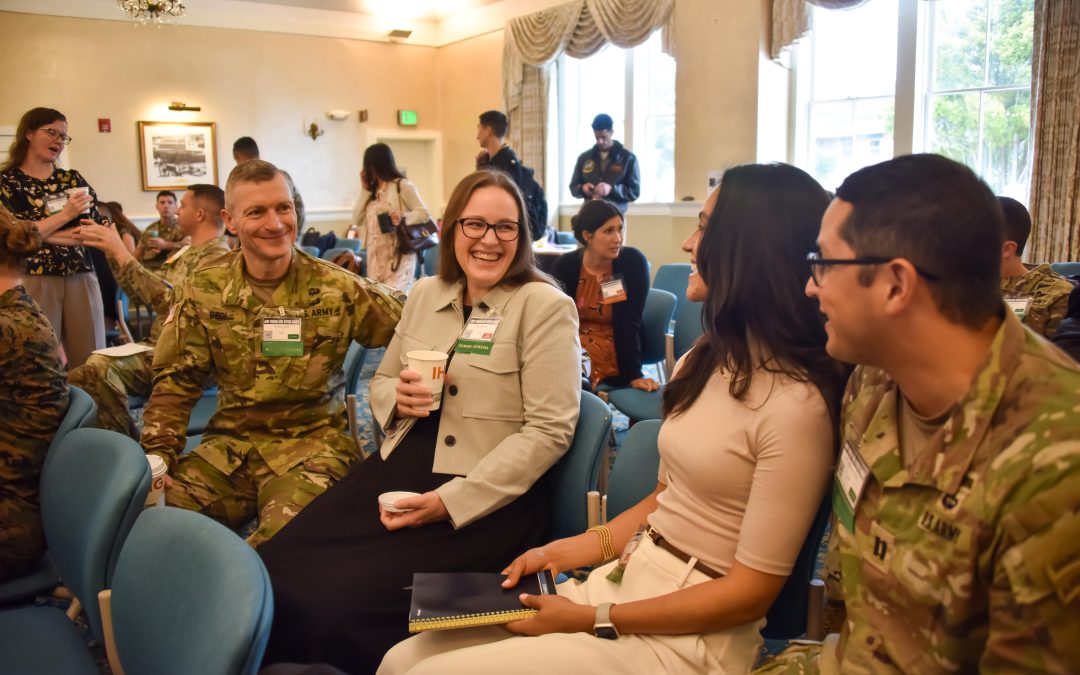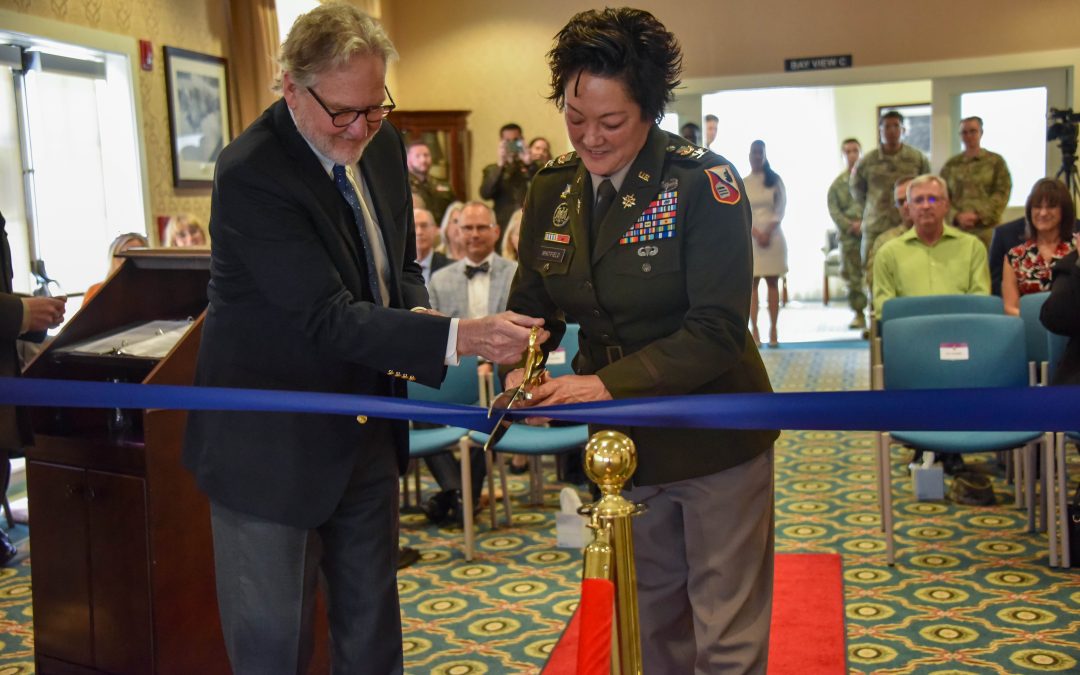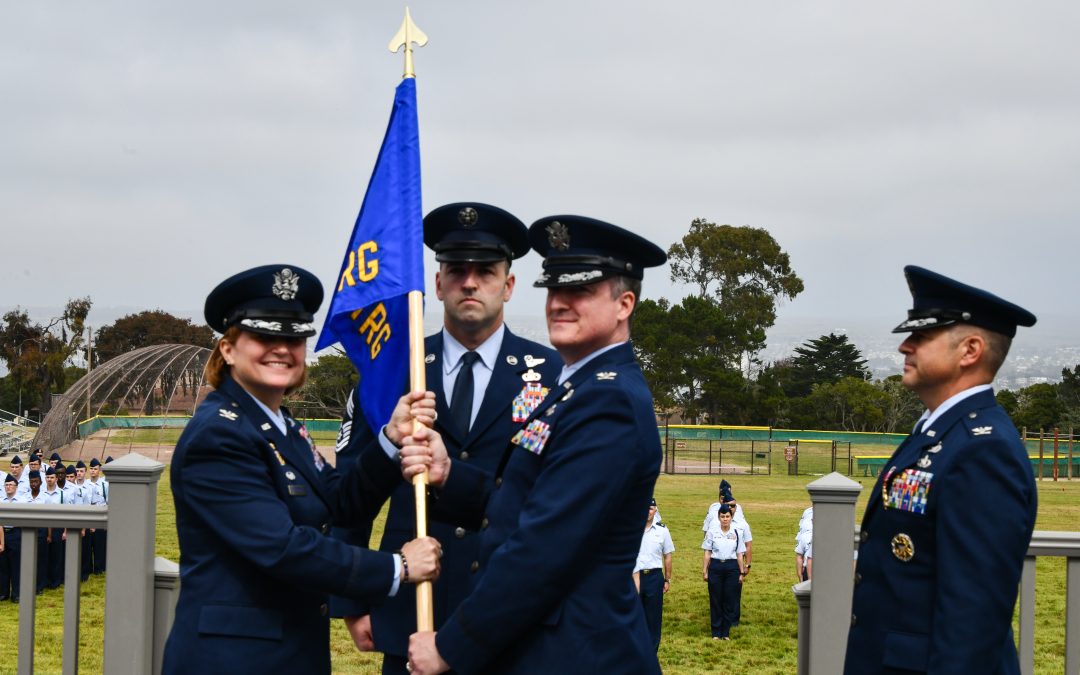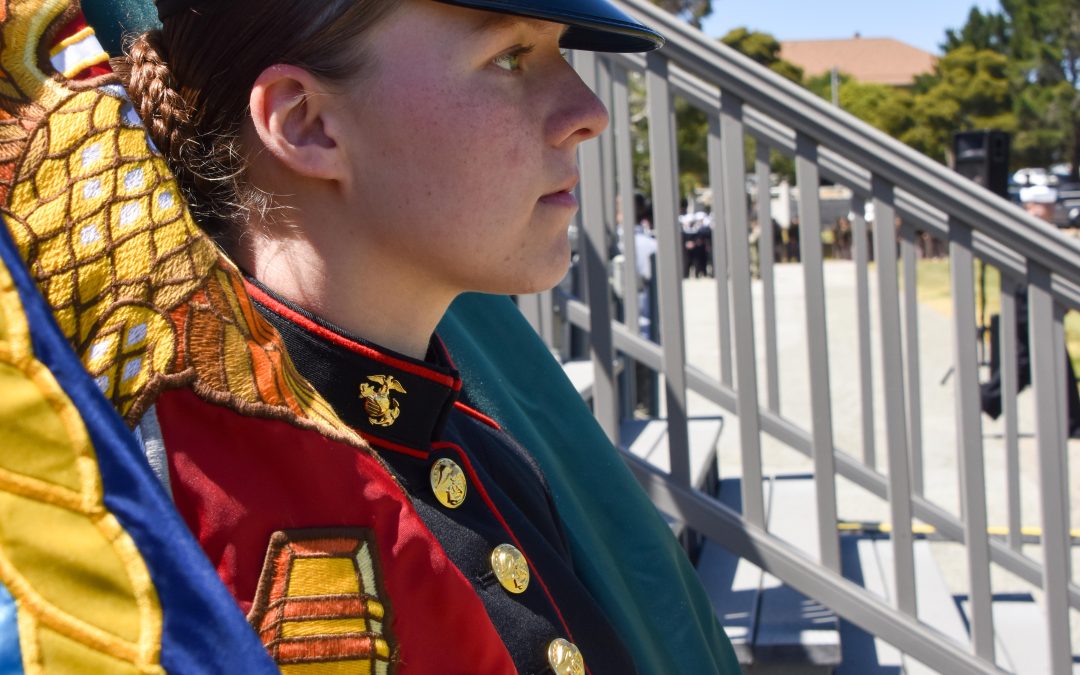Col. James A. Kievit, a former infantry officer and currently a U.S. Army Special Operations Civil Affairs officer with multiple overseas deployments, is no stranger to challenge, on or off the battlefield. Behind his unassuming and quiet demeanor lies a brilliant tactician, concealed by his imposing six-foot three-inch physique that instantly commands respect whether he wears colonel wings or not.
However, when he stepped into the role of commandant at the Defense Language Institute Foreign Language Center in the summer of 2021, Kievit knew he was facing a significantly different responsibility unlike any he’d ever undertaken. Leading the nation’s most prestigious military foreign language school was no small feat and he understood the weight of the task at hand.
“DLI looked like nothing I had commanded before…In previous commands, platoon through company through battalion, I knew exactly what I wanted to do… With DLI, I was coming into a brigade command position that was totally different,” said Kievit.
Over the past 20 years since 9/11, DLIFLC has faced on-going challenges, notably a consistent demand from key stakeholders for improved student graduation rates. In 2002, the National Security Agency, a significant DLIFLC stakeholder, emphasized their requirement for foreign language proficiency at a listening and reading level of 3/3, according to the Interagency Language Roundtable scale.
“Eventually, it became clear to me, that the language proficiency level of 3/3, which the intelligence community wanted and was pushing us to achieve in the Basic Course, was achievable, but not through the Basic Course alone,” said Kievit.
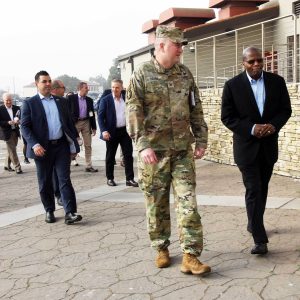
DLIFLC Commandant Col. James Kievit walks with the Under
Secretary of Defense for Intelligence and Security the Honorable Ronald Moultrie during a visit in June 2023.
In fact, Kievit explained that the immense pressure put on DLI instructors to produce linguists at ever increasing proficiency levels, detracted from their efforts to graduate students at the level of 2/2/1+.
Surveys of the needs of the services conducted at various junctures over time, confirmed that many linguist job requirements required the 2/2/1+ proficiency level, but that time on the job and additional training could lead to higher proficiency levels in the force, which is required for other missions.
Confronting that challenge, but more so having to dispel the notion to his stakeholders that the sole path to achieving greater proficiency levels for students was exclusive only the DLIFLC Basic Course, was a task in itself. “It just didn’t make any sense to me,” he said.
“I used [my] technical knowledge of the intelligence realm and applied that to the vision of what I thought the normal job progression was for an apprentice to [become] a master,” he explained.
“You can’t take an infantryman from Basic Training and send him on the Osama Bin Laden raid. There is a lot of development that happens before you get into a unit like that.” And it was putting this reality in layman terms that Kievit’s strategy finally hit its mark with leadership in the DoD community.
“Col. Kievit looked at the Marine Corps and the Foreign Area Officer Program graduates and concluded that their graduation rates of 80% achieving 2/2, 40% achieving 2+/2+ and 10% reaching a 3/3, should be a goal applied to all,” said DLIFLC Chief of Staff Steve Collins.
In Kievit’s analysis, Collins said, the Marine Corps and Foreign Area Officers, with their small numbers, had the best preparation for success in the language classroom and historically were achieving the best results.
“It is quite necessary to look up and out,” Kievit said, who explained that the “80/40/10 model” was the first solution offered to DoD stakeholders, a conditions-based approach, rather than a time-based dramatic change in the graduation standard that may leave service linguist requirements unfilled.
His second solution was to socialize and implement an apprentice to master strategy, whereby DLIFLC would graduate apprentices with global language knowledge and gradually, through work experience and additional training, become journeymen and eventually masters of their language and trade.
“I know that Lieutenant Kievit would have been a pretty bad commandant, I will be very upfront there. But after following a model of professional development specified by the Army, Colonel Kievit is not too bad as commandant,” he chuckled.
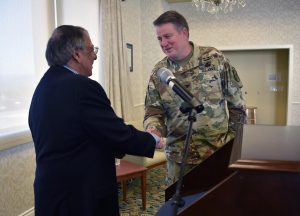
DLIFLC Commandant Col. James Kievit shakes hands with former Secretary of Defense, Leon Panetta, during a visit to the Institute.
In March 2022, the Institute achieved a significant milestone by dynamically enhancing its accreditation process, incorporating a 4-year Bachelor of Arts program, approved by Congress and the President, in addition to conferring Associate of Arts degrees beginning in 2002, that today numbers more than 20,000 recipients.
While intermediate and advanced courses had been taught at DLIFLC in residence and at some Language Training Detachments since 2008, the services were reluctant to allow linguists to take significant time away from the mission to take these courses. The introduction of a BA in foreign language degree is expected to dramatically increase the number of attendees as well as serve as motivation for individuals get their degree and stay in the military.
Consequently, in his command guidance, Kievit has set forth a detailed plan on how to increase organizational agility, rigorously pursue standardization curricula and evaluation in both in the Basic Course and intermediate and advanced courses, as well as focusing on integrating technology and basing decisions on utilizing data analytics.
“Standardization gives us a mean from which to deviate,” explained Kievit. “If they [services] have confidence that attending the intermediate course will return a 2+ linguist to them, or the advanced course returns a 3 linguist, then they will send [students].
Kievit recognized that ensuring student success was only one part of the equation; he also understood the importance of supporting faculty success. As a result, he instructed his staff to conduct research and establish an apprentice-to-master program tailored to faculty members.
Much like the guidance provided to officers in the AR 600-3 manual, which outlines expectations at each grade level, Kievit envisioned a similar model being created to help guide and empower faculty members in their professional development journey.
“There are a number of educational [pathways] for our faculty. I would like to create … a deliberate approach that is backed by our hiring and selection processes, because they have to be incentivized to be effective. This could mitigate some of the anxiety the faculty feel as term employees, said Kievit.
“If James Kievit were to be hired as an assistant professor at DLI, I would want to know how I could potentially stay here for a longer career, with multiple pathways clearly defined. If I wanted to stay in the classroom, I may need more education. If I had plans to move into leadership positions, I would also have to have the education and skills necessary to be the best DLI leader and faculty member possible,” he explained.
With just over six months left of his assignment, Kievit urges leadership, faculty and staff to open channels of communication, both inside and outside of DLIFLC. “This is a long-term plan. We have to do what we know best and inspire higher ups,” by providing information about the mission that showcases DLIFLC’s excellence in foreign language teaching as a unique learning institution.

